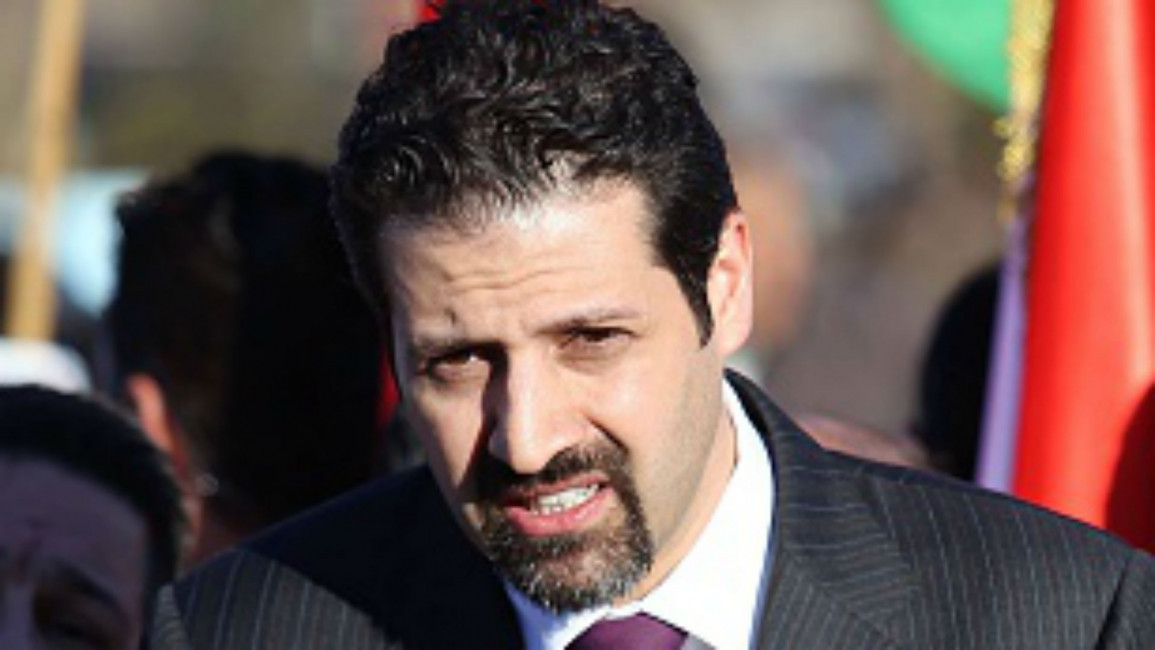Turkey to resume flights to Sulaimaniyah airport in July after KRG's deputy PM agreed to all Turkish conditions
Qubad Talabani, the deputy prime minister of the Kurdistan Regional Government (KRG) visited Turkey secretly and met with Hakan Fidan, head of the Turkish intelligence agency (MIT). Both sides discussed last week's Turkish drone attack on Sulaimaniyah airport and ways of reopening the Turkish airspace to and from the airport, Kurdish officials and sources said.
Mazloum Abdi, a Kurdish commander of the Syrian Democratic Forces (SDF), survived a Turkish drone attack in the vicinity of Sulaymaniyah International Airport on Friday.
The attack came a few days after Turkey closed its airspace to aeroplanes travelling to and from Sulaymaniyah due to what it said was intensified activity by Kurdistan Workers Party (PKK) militants.
Talabani met with the deputy chief of Turkey's intelligence service, Mutlu Tuka in Baghdad on Wednesday before flying for Ankara in an unannounced visit to meet with Fidan.
➡️ Mazlum Abdi had been in #Sulaimaniyah working on a joint program to fight #ISIS
— YPJ Information (@YPJ_Info) April 9, 2023
➡️ The attack is a continuation of aggression against #Kurdistan & #Iraq in attempts to sabotage the #SDF’s international relations & common efforts to defeat ISIS
"In the meetings, both sides delivered their own complaints to each other," a well-informed source close to Talabani’s ruling party, the Patriotic Union of Kurdistan (PUK) told The New Arab on condition of secrecy.
"Although Iraq and the PUK have initiated their efforts to deal with the issue, so far, they have not reached any agreements. Turkey has agreed to resume its flights to and from Sulaimaniyah International Airport after 3 July on several conditions. Talabani has agreed to the Turkish conditions," the source added.
Latif Nerwayee, a member of PUK's leadership committee confirmed Talabani's visit to Turkey during an interview with NRT Kurdish broadcaster.
"Talabani's visit to Turkey is aimed at de-escalating security tensions between PUK and Turkey through diplomacy, the meetings to continue and will bear positive outcomes in the future," Nerwayee said.
Tuka on Monday in Baghdad met with Iraqi National Security Agency head Qassem Al-Araji and informed him of reported threats to Turkey from PKK militants based in Iraq and cross-border weapons smuggling operations, according to a source who spoke to Al-Araby Al-Jadeed, TNA's Arabic language sister website.
Turkey's conditions are not new and include closing all offices of political parties seen as close to the PKK in Sulaimaniyah province, sharing intelligence information with MIT on PKK activities and halting all assistance to the Syrian Democratic Forces (SDF) in northeast Syria.
Bafel Talabani, PUK's leader and elder brother of Qubad, visited northeast Syria last December and met with Mazloum Abdi, the General Commander of the Syrian Democratic Forces (SDF) in northeast Syria, and senior political leaders. He also expressed support for Kurds in Turkey and Syria during a speech marking Newroz celebrations on 21 March.
Turkey and its Western allies blacklist the PKK as a "terrorist group".
But, despite shrill complaints from Ankara, Washington supports the SDF, which is the Kurdish administration's de facto army in the northeast and led the battle that dislodged the Islamic State militants from its last scrap of territory in Syria in 2019.
Previously, two helicopters mysteriously crashed in the Duhok province of the Kurdistan region on 18 March, killing at least nine members of the Syrian Democratic Forces (SDF), including SDF counter-terrorism commander Shervan Kobani - a cousin of SDF leader Mazloum Abdi.
The SDF said the delegation was on its way to Sulaimaniyah "to exchange security and military expertise", and they crashed due to "bad weather".
Ankara regards the YPG, a dominant faction in the Syrian Kurdish administration, as an offshoot of the PKK and has mounted repeated armed incursions to force its fighters out of areas near the border.



